Graham Reid | | 5 min read
Paul Horn: Agra (from Inside)
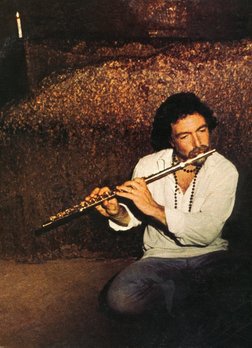
For a man pegged as “the founding
father of new age music," jazz saxophonist and flute player Paul
Horn has a clear, pragmatic view of the music – which was spawned
in the wake of his Inside album, recorded in the Taj Mahal in the
late Sixties.
That meditative piece -- which used the
long acoustic delay within the building -- has been hailed as one of
the earliest of the genre which has become new age music.
But Horn is quickly dismissive of much
of what passes for new age music today.
For him, a man who turned his back on
recording with Miles Davis, Duke Ellington, Quincy Jones and others
back in the mid-Sixties, there must be a spiritual consciousness
behind the music, and that comes from the musician.
Dissatisfied with his life and of an
inquiring mind, he was led to transcendental meditation and
specifically the Maharishi Mahesh Yogi in 1967.
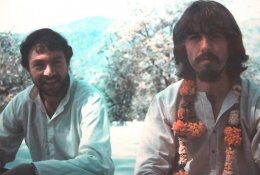 “There was a paradox between all that
was happening in my professional life as a musician in Hollywood at
the time, and the fact that I was personally very unhappy, so I
realised I had to make basic changes.
“There was a paradox between all that
was happening in my professional life as a musician in Hollywood at
the time, and the fact that I was personally very unhappy, so I
realised I had to make basic changes.
“I'd always been interested in things
like Zen and yoga and, like a lot of people at that time. my antennae
were up during that period of great social change.
"A friend introduced me to TM and
I realised I was ready to hear and understand. One of the first
things I learned from becoming more focused is I am the primary
instrument and whatever instrument I play is secondary. I had never
thought of myself that.”
Inevitably Horn‘s music changed because it was a reflection of his changes - “I rearranged and up-graded my values system" -- and being in India to make a film of the Maharishi at Rishikesh inevitably led him to the Taj Mahal.
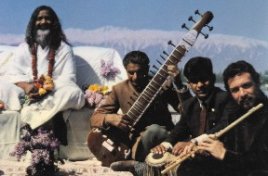 His discovery of the delay of sound
within the building produced a recording there one night, although he
says today he had no particular intention of releasing the album
which subsequently sold more than 800,000 copies.
His discovery of the delay of sound
within the building produced a recording there one night, although he
says today he had no particular intention of releasing the album
which subsequently sold more than 800,000 copies.
Just as within every other sphere of
music, he says, there is some shallow new age music, and the
technology has allowed artists of limited musical vocabulary to
record and release material with little or no consciousness behind
it.
“At the time I saw there was a much
higher value to music than entertainment and achieving the personal
recognition or riches or fame that goes with it. That is part of a
cycle you go through and when you are younger you have goals, that’s
natural.
“But speaking specifically about
music, if you don't get out of that you won't be fulfilled as a
musician. How much fame and fortune can you get?
“Music has the power to heal and
unite people and is a powerful tool which is very much needed. It’s
a universal language and found in every culture. And the instrument I
play, flute, seems to be part of all ancient cultures.
“But I like the words 'new age' and
hope we are getting into a new age, because the old one isn’t
working any more. Einstein said that with the discovery of atomic
energy everything changed in the world except how man thinks. That’s
the problem."
For Horn, his change involved leaving
Hollywood and its attendant lifestyle for Canada, ceasing to worry
about smart career moves and letting the changes in his life happen
naturally.
"When you begin to meditate you
gravitate towards what’s right for you, and that’s different from
person to person. Some stop smoking, some don’t. Some stop eating
meat, some don’t . . . there aren’t any rules. I did stop smoking
and found that easy. I’m on and off as far as vegetarianism is
concerned. But my lifestyle changes in a natural way and the thing is
I’m not afraid, as some people are, to make changes.”
The changes in Horn’s music were as
significant and have led to a lifetime of experiments and
explorations where he tried to put ego out of the way and become the
conduit for the music itself.
Where that music comes from before it
is channelled through him is, he says, “the creative force of life.
I believe there is a creative intelligence behind all this."
The music which has garnered him the
most prominence has come from his recording inside particular sites
like the Taj Mahal, the Great Pyramid in Egypt, a cathedral in Russia
and at Findhorn in Scotland. The restful, ambient nature of these
recordings has been much copied, often by lesser musicians, and form
a seminal point in new age music. Not that Horn had that in mind.
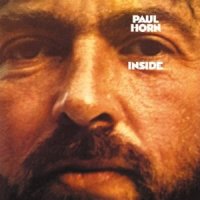 “All I did was play solo flute in the
Taj Mahal. I never went in with any preconceived notions or hope for
a new genre of music to emerge, I was just enjoying an interesting
experience.
“All I did was play solo flute in the
Taj Mahal. I never went in with any preconceived notions or hope for
a new genre of music to emerge, I was just enjoying an interesting
experience.
“I’m also not looking to jump
around the world and record in various places. It would get too
gimmicky . . . and too boring. How many solo flute things can I do?
They could all get to sound the same.
“But if some place presents itself in a natural way -- and it is some specific place, not a parking lot -- and has good acoustics, and if I become part of it, then that could influence me to do something. Since I play totally improvised music which is about how I feel at the time, something different has to be there."
He says he has no expectations and
therefore no disappointments about the music which falls loosely
under the new age label and, just as he feels he is constantly
changing, so too does the elusive music.
“The label new age is just a category
for marketing but often the music within falls short of what ‘it‘
is . . . and the 'it' is constantly changing.”

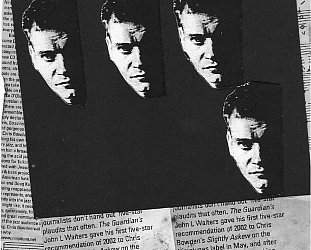
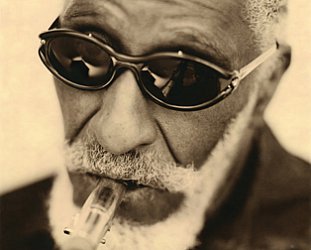
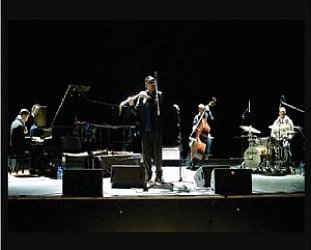

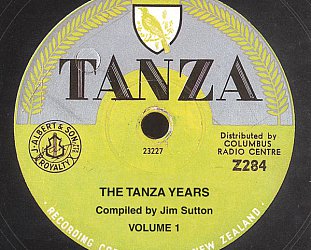
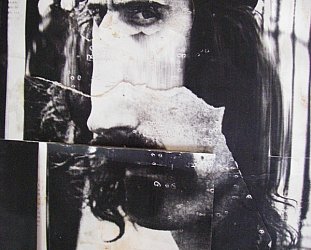
post a comment